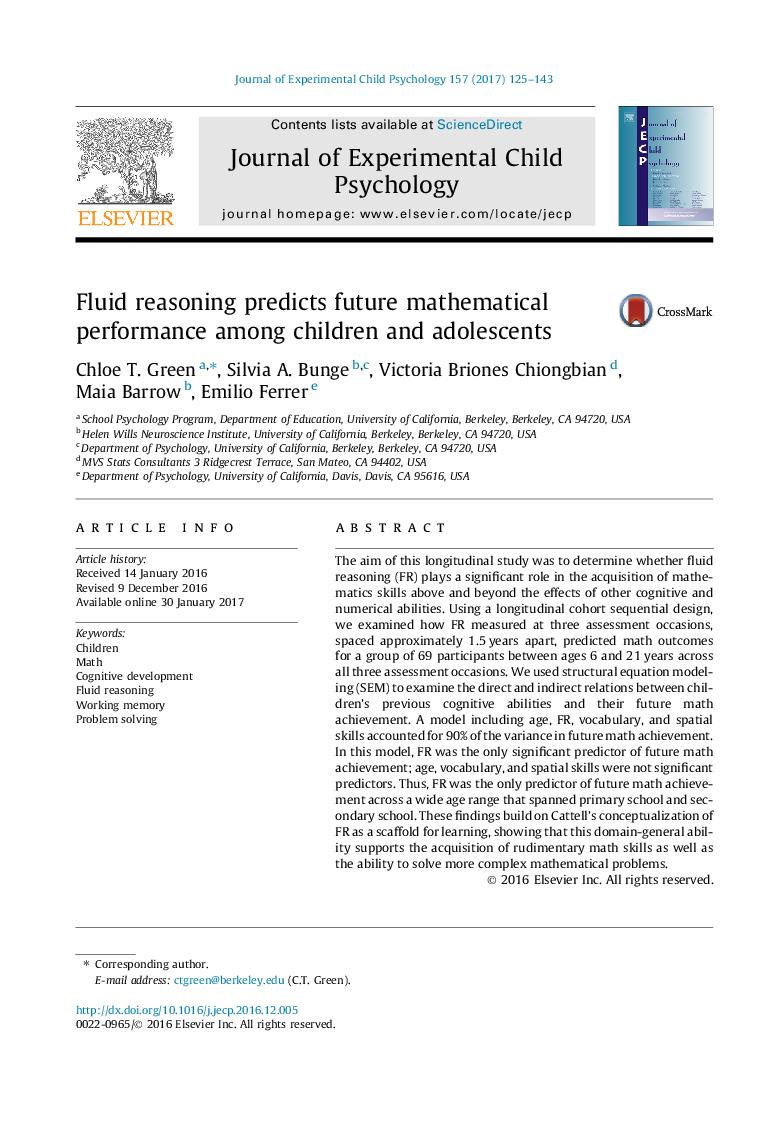ترجمه فارسی عنوان مقاله
استدلال سیال عملکرد ریاضی آینده در میان کودکان و نوجوانان را پیش بینی می کند
عنوان انگلیسی
Fluid reasoning predicts future mathematical performance among children and adolescents
| کد مقاله | سال انتشار | تعداد صفحات مقاله انگلیسی |
|---|---|---|
| 157092 | 2017 | 19 صفحه PDF |
منبع

Publisher : Elsevier - Science Direct (الزویر - ساینس دایرکت)
Journal : Journal of Experimental Child Psychology, Volume 157, May 2017, Pages 125-143
ترجمه کلمات کلیدی
فرزندان، ریاضی، توسعه شناختی، استدلال سیال، حافظه کاری، حل مسئله،
کلمات کلیدی انگلیسی
Children; Math; Cognitive development; Fluid reasoning; Working memory; Problem solving;

